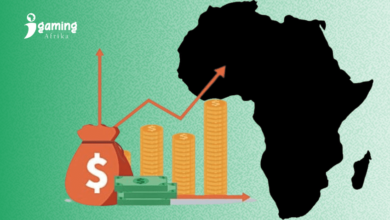Kenya Could Reap Greater Rewards from Taxing Winnings than Imposing Excise Taxes on Betting Stakes

The proposed Kenya Finance Bill 2023 has sent shockwaves through the country’s economy and financial sector. One of the key areas of contention is the proposed increase in excise duty from 12.5% to 20%. In a recent interview with YouTuber and TV host Oga Obina, Embakasi East Member of Parliament Paul Ongili Owino alias Babu Owino weighed in on the impact of the proposed bill on the Kenyan economy and the betting and gaming sector.
According to Babu, the government’s decision to increase excise duty could have unintended consequences. “They think if they are collecting here and there, they are collecting more. They are actually collecting less. So therefore, even betting, they are killing that industry,” he said.
The MP argued that by raising excise duty on the staked amount, the ripple effect would be the compression of the amount wagered, resulting in a reduction of the potential amount to be won.
Babu demonstrated his point by using a hypothetical example of a game between Fulham and Manchester United with odds of 50:1. If a punter stakes 1000 KES on Fulham to win, they could potentially win 50,000 KES. If the government had a single tax on winnings, it would collect 10,000 KES in taxes. However, if there is both excise duty on the total amount wagered and a tax on winnings at a rate of 20%, the government would collect only 8,200 KES.
Read Also: The Looming Death of the Betting Industry in Kenya: Reject the Finance Bill 2024
Babu Owino emphasized that the betting industry is globally accepted and should be spared from excessive taxation. “Betting is globally accepted,” he said.
The MP urged the government to reconsider their tax policies if their goal is to collect more revenue. Instead of imposing multiple taxes, he suggested focusing on a single tax on cumulative amounts won, which would result in higher overall tax collection.
Babu’s arguments highlight the concerns that many in the gaming industry have about the proposed finance bill. The government must carefully consider the potential consequences of its tax policies to avoid stifling economic growth and harming businesses.
Ultimately, the fate of the Kenya Finance Bill 2024 remains uncertain, but one thing is clear: the proposed changes will have significant implications for the country’s economy and financial sector. As lawmakers debate and refine the bill, it is crucial that they prioritize balanced taxation policies that promote growth and stability.






















